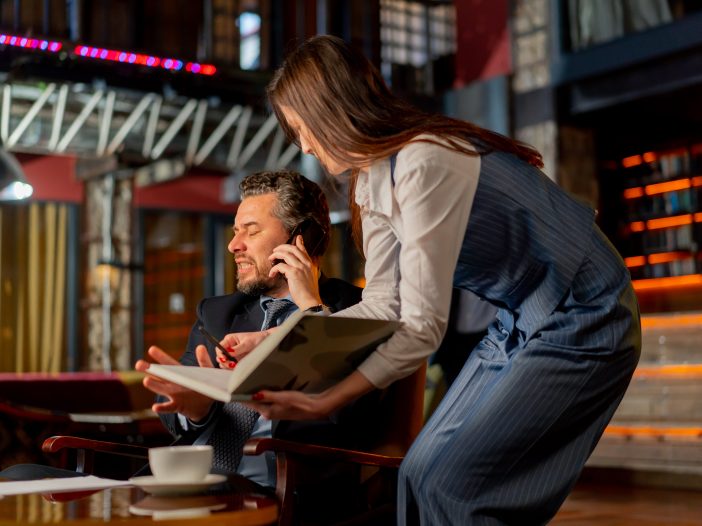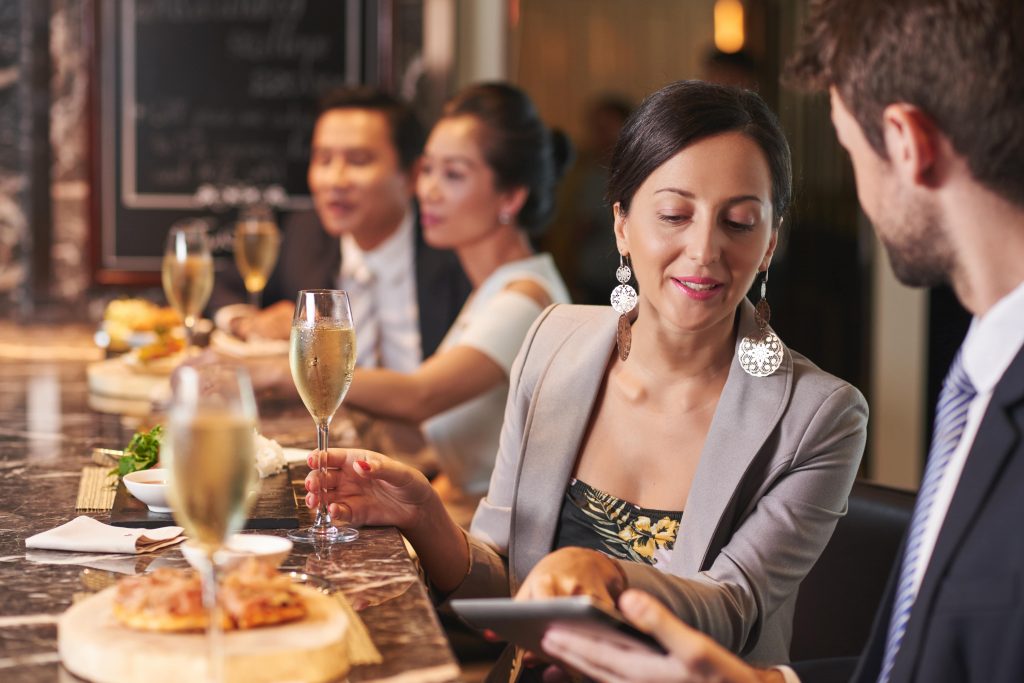
When you book a table at a restaurant, there’s always that question lurking in your mind: how long do restaurants hold reservations? You’ve likely been there before—running late or caught in traffic—and wondering if your table will still be waiting when you finally arrive. The answer isn’t always straightforward, but understanding how long your reservation will be held can save you from frustration.
Key Takeaway:
Most restaurants hold reservations for 15 to 30 minutes after the scheduled time, but the specifics vary based on factors like the type of establishment, time of day, and reservation systems.
How Long Do Restaurants Hold Reservations?
Alright, so how long do restaurants actually hold reservations? On average, most spots will hold your table for 15 to 30 minutes. That sounds pretty reasonable, right? You don’t have to rush, but you also can’t be too relaxed about getting there. But the truth is, this time frame isn’t set in stone—it changes depending on several factors.

Let’s break it down.
Factors That Affect How Long a Restaurant Holds Reservations:
- Type of Restaurant: A fine dining restaurant likely has stricter rules. They might only hold your table for 15-20 minutes. Why? These places often have a more formal vibe, and they expect their guests to be on time. Casual spots, on the other hand, might be more lenient, holding the reservation for 30 minutes or longer.
- Peak Hours: Got a reservation at 7 pm on a Friday night? You might want to be more punctual. During busy times, restaurants won’t hold your table for long. They need to manage high foot traffic, and your table is a precious resource. If it’s a slower time, say a weekday afternoon, they might be a bit more flexible.
- Reservation Systems: Many restaurants use automated systems like OpenTable or Resy to send reminders. These systems also track when you check in. If you don’t show up within the reserved window, they might release your table to walk-ins. Some systems even allow restaurants to see your history—if you’re a repeat offender of no-shows, they might not be so lenient next time.
Discover the best venues for your next event! Whether you’re planning a birthday party, wedding, or corporate event, find and book the perfect space with Laparizone. Start your search now and make your event unforgettable
What Happens If You’re Late?
Let’s be real—life happens. Maybe you hit unexpected traffic or you’re stuck in a meeting. What then? Well, if you’re late, the first thing to do is call the restaurant. Communication is key. Most places will appreciate a heads-up and might extend that grace period for you.
Still, if you’re pushing past 30 minutes, the restaurant has every right to give your table away. At the end of the day, they’ve got a business to run. They don’t want empty tables when they could be seating paying customers.
The Impact of No-Shows on Restaurants
Ever wondered why restaurants have such a strict policy on holding reservations? One word: no-shows. When guests don’t show up for their reservations, it leaves restaurants scrambling. Those empty tables mean lost revenue. For some places, especially smaller or fine dining spots, this can be a big deal. In fact, research shows that no-show rates can hit 20% during peak dining hours. That’s a lot of lost money.
To combat this, many restaurants now require a credit card to hold a reservation. If you don’t show up or cancel within a certain window, you could be charged a no-show fee. Annoying? Maybe. But it’s their way of protecting their business from empty tables.
Stats to Consider:
- 15-30 Minutes: The average hold time for reservations.
- 20%: The no-show rate for restaurants during peak times.
- 30% Reduction: Restaurants that send automated reminders reduce no-shows by 30%.
These numbers tell the story—holding reservations for too long can seriously impact a restaurant’s bottom line.
What Restaurants Gain by Holding Reservations
Now, let’s flip the coin. Why even hold reservations at all? Wouldn’t it be easier to just do walk-ins and first-come, first-serve? Not quite. Holding reservations is actually a smart business move.
- Better Table Turnover: By managing reservations properly, restaurants can optimize their seating arrangements. They know when tables will be free and when new guests are arriving.
- Happier Customers: Let’s face it, no one likes standing around waiting for a table, especially during a busy night. Reservations guarantee that guests have a spot, and they don’t have to stress about waiting.
- Improved Staffing: Knowing how many guests to expect helps with staffing. The kitchen can prepare for busy periods, and servers aren’t overwhelmed.
Holding reservations can be a balancing act, but when done right, it benefits both the restaurant and the diners.
Real-World Examples of Restaurant Reservation Policies
Let’s put all this theory into practice. Different restaurants approach reservations in unique ways, and these examples show the variety of policies out there.
- The French Laundry (Napa Valley): One of the most famous fine dining spots in the world. Reservations here are held for just 15 minutes past your scheduled time. Given the high demand, you’re lucky if you can even snag a spot, let alone be late.
- Olive Garden (Casual Dining): A more relaxed approach. They’ll usually hold a table for about 30 minutes before releasing it. Casual dining restaurants often cater to larger groups, so they understand that sometimes people are running late.
- OpenTable Reservations: Many restaurants using OpenTable or similar platforms will hold your reservation for about 15-20 minutes. You’ll often get an automatic text reminder when your reservation time is approaching.
These examples show how diverse the approaches to holding reservations can be, and how they often reflect the restaurant’s overall vibe and clientele.
The Role of Technology in Restaurant Reservations
Gone are the days when you had to call the restaurant directly to make a reservation. Now, most restaurants use some form of reservation management system. Platforms like OpenTable, Resy, and Yelp Reservations have changed the game, not just for diners but for restaurant owners too.
Benefits of Reservation Systems:
- Automated Reminders: Ever get those text or email reminders about your upcoming dinner? That’s the system working. These reminders help reduce no-shows by a significant margin.
- Easy Modifications: Need to change the time or cancel? You can do that directly through the app, making it more convenient than having to call the restaurant.
- Tracking Repeat Guests: These systems also allow restaurants to track guest behavior. If you’re someone who consistently no-shows or cancels last minute, it’ll be noted in their system.
Technology makes the entire reservation process smoother, for both diners and restaurants. It helps manage expectations, reduces no-shows, and ultimately improves the overall dining experience.
Why Diners Should Care About Reservation Policies
Okay, so now that you know how long restaurants hold reservations, why does it matter to you? Well, understanding the ins and outs of reservation policies can help you avoid unnecessary stress.
Tips for Handling Your Reservation:
- Call Ahead: If you’re running late, don’t leave the restaurant hanging. A quick phone call can save your reservation.
- Be Mindful of Peak Times: If you’re dining during a busy time, try to arrive early. That extra buffer can ensure you get your table without any drama.
- Use Reservation Apps: They’re convenient, and they give you the option to modify your reservation without having to call.
By following these simple steps, you’ll have a smoother dining experience and keep your relationship with your favorite restaurant on good terms.
FAQs
How long do restaurants hold reservations?
Most restaurants hold reservations for 15 to 30 minutes after your scheduled time.
What should I do if I’m running late for a reservation?
Call the restaurant! They may be able to hold the table for you a little longer if they know you’re on your way.
Do all restaurants charge no-show fees?
Not all, but many do, especially fine dining establishments. It’s best to check the restaurant’s policy before booking.
Can I lose my reservation if I don’t confirm it?
Yes, some restaurants require you to confirm your reservation through text or email. If you don’t, they might give your table away.
Final Thoughts
So, to answer the original question—how long do restaurants hold reservations?—it depends, but 15 to 30 minutes is the typical window. Knowing this can help you plan your night out better, avoid unnecessary stress, and ensure you have a table waiting for you. Just remember, communication is key. If you’re running late, a quick call can make all the difference.
By understanding how restaurants manage their reservations, you can make sure your night out goes off without a hitch. Safe to say, your reservation (and dinner) will be in good hands if you show up on time—or at least close enough to it.









